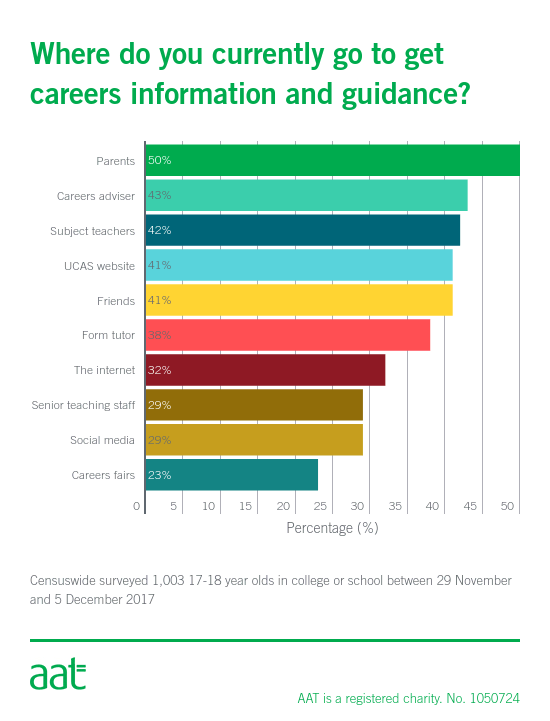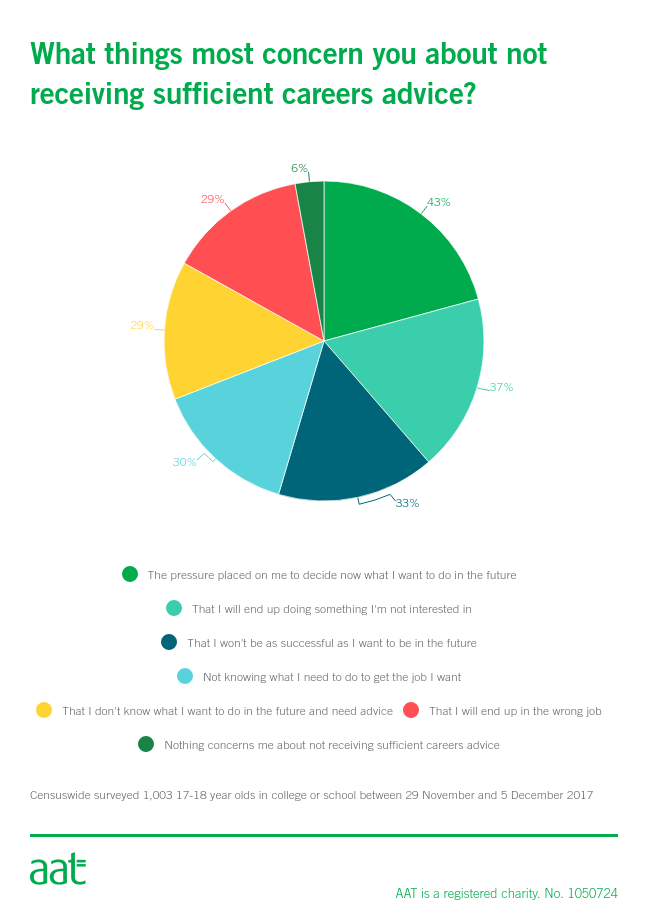Don’t just consider a degree as the only successful route into the workplace

We’re only days into 2018 but already a huge deadline is upon us those intending to leave school and college following the completion of their summer exams.
Applications to university via the UCAS system, if not already completed, must be sent off by today (Monday 15 January) by sixth formers, who will then be hoping that their education will be extended having secured whatever grades they may need.
For many, continued academia is the correct next step towards their future career, but this won’t be true for everyone leaving school this year. New research conducted by AAT among school leavers suggests that those who might benefit from technical routes into the workplace, such as apprenticeships or traineeships, are not receiving the levels of advice or guidance about these alternative routes. This is not about differing levels of intelligence or academic achievement, but about what is right for each individual and their goals and circumstances.

Our survey, conducted among over 1,000 17 and 18 year olds who remain in the school or college system, showed:
- Half (50%) of students leaving school this year say they need more advice than they currently receive
- Knowledge of the National Apprenticeships Service (NAS) is only half (36%) that of UCAS (72%), while only half (50%) have heard of the National Careers Service (50%)
- Less than half of school leavers (43%) say they use a careers adviser for information and guidance
Skills minister Anne Milton is keen to tackle the scarcity of careers advisers within schools in particular this year, pledging £4 million to ensuring every school has a dedicated careers leader by the start of the 2018-19 academic year. This is clearly a step in the right direction, though it won’t have any impact on those who might well currently be in the process of completing their UCAS application.

Deciding the first step to take after leaving school can, for many, feel critical towards determining their eventual career, and it is with that in mind that it seems particularly unfortunate if the advice received is lacking and potentially biased towards the university route.
The suggestion of ‘bias’ arises because six per cent of school leavers intending to complete a UCAS form said that they were doing so only because they had been told to complete one. A further four per cent told AAT that they were unaware of any alternatives to the university route.
There are great alternatives to university available for those whom university may not be the best ongoing route, and there is clearly more to be done to ensure school leavers are presented with all the options available to them so they can make the best informed decision about their future.
One suggestion AAT has made is to merge the UCAS and NAS systems, along with other alternative routes to the workplace, into one online portal that can ensure equal coverage of all routes to employment.
Apprenticeships and other high-quality technical routes are available to people of all ages, and can give people the ability to get ahead in a new career. They cover a wide variety of industries, not just traditional blue-collar professions, and new trailblazer apprenticeship pathways introduced in 2017 are further adding to the range of available schemes.
Holding a recognised apprenticeship can provide transferable skills that benefit employees and employers alike, as well as providing access to an individual’s career of choice.
Suzie Webb, Director of Education and Development, AAT
About Suzie Webb: She has been Director of Education and Development at AAT since September 2011. Suzie leads the strategic development of AAT qualifications both in the UK and internationally, including expansion and delivery of AAT’s qualification portfolio and the further development of its online assessments and e-learning tools.
Censuswide conducted an online survey of 1,003 17-18 year olds in college or school. The survey was completed between 29 November and 5 December 2017. For the purposes of this story ‘school leavers’ refers to the sample group surveyed.











Responses